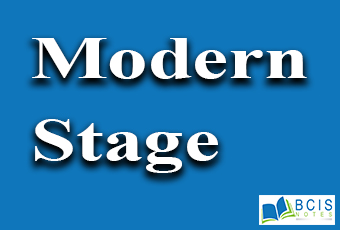
Modern stage:
Psychology refers to the science of behavior and mental processes. Modern stage has three terms ‘science’, ‘behavior’ and ‘mental processes’ which need further discussion as follows:
- Psychology as an Empirical Science
- Psychology studies Behavior: Overt behavior
- Psychology studies Mental Processes: Covert behavior
Common Sense of Psychology:
 Common Sense knowledge is the locally developed knowledge acquired through the experiences of the people in their daily life. The modern stage is popular as they are an updated version of the information. Many people carry the common sense of psychology some common misconceptions people hold about psychology are:
Common Sense knowledge is the locally developed knowledge acquired through the experiences of the people in their daily life. The modern stage is popular as they are an updated version of the information. Many people carry the common sense of psychology some common misconceptions people hold about psychology are:
➢ Psychologists cannot read face.
➢ Some others perceive that psychologists can even read minds.
➢ Similarly, some people consider psychologists as the ones who deal with mentally ill people only.
➢ A person feels that Psychologists are fortune teller like astrologers. Can estimate character at glance. ‘Due to such misconceptions, people often feel uncomfortable to talk with persons from psychology.
SR /SOR Paradigm
➢ S- Stimulus (Input): Stimulus is the Variable which initiates activity for e.g. – Lights, Sounds Incentives stimulus sometimes is referred in terms of the sense organ which is affected e.g. visual stimulus, auditory stimulus and so on…
➢ O-Organism (processing): It is known as individual variables (of any age sex, education level, personal values, aspirations, intelligence, thoughts which has a great role in an organism for resulting response)
➢ R- Response (output) Responses are different depending upon the species and stimulus e.g. Blinking eye is the response to intense light (stimulus), crying in pain, smile while being happy, etc.
S-R
This theory believes that an organism responds according to the nature of the stimulus (stimulus-response). Watson and Pavlov advocate this concept. Woodworth and other psychologists advocated this concept. Not included mental process.
S-O-R
This approach believes that the nature of stimulus and nature of organism play a role in the particular response (stimulus-organism-response). An organism is considered to be passive. There is the organism to play an active role in responding. Included mental process.
Nature/ Characteristics of psychology:
- Psychology is the study of human behavior and mental process.
- The word ‘psychology’ was coined in 1590 by Rudolf Goecke. It is derived from two Greek words ‘Psyche’ and ‘Logos’ which means the soul and study or science.
- Scientific psychology began in 1879 when the first laboratory was established and the human mind and behavior was systematically studies.
- It makes a prediction about human behavior.
- It has its own applied aspects. Various branches of applied psychology are Industrial, Legal, Clinical, Educational psychology, etc.
- There are different methods to study psychology like a case study, experiment, observation, etc.
You may also like Similarities and differences of Psychology.

Leave a Reply